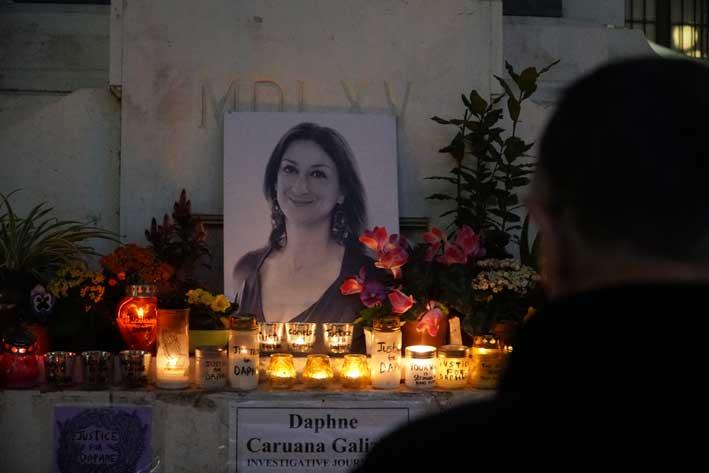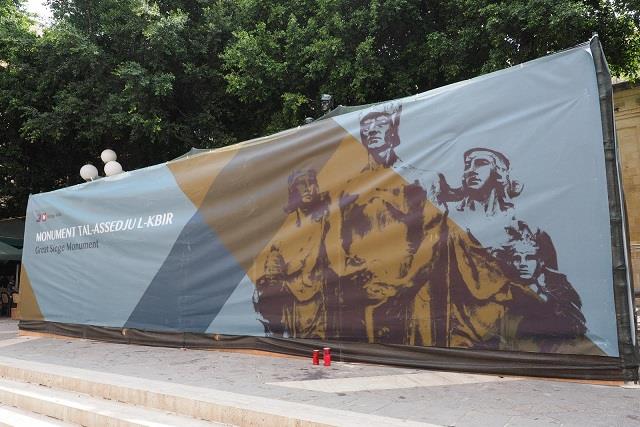A group of five international press freedom and freedom of expression NGOs – including renowned organisation Reporters Without Borders, as well as the International Press Institute and PEN International – will be undertaking a joint mission to Malta from 15 to 17 October.
They will be visiting Malta first and foremost to mark one year since the assassination of Daphne Caruana Galizia, which has been a priority for all the organisations.
Talking to The Malta Independent on Sunday, Rebecca Vincent from Reporters Without Borders said: “We want to show our solidarity with the local civil societies and the efforts that are being organised on the ground to remember Daphne.”
Ms Vincent expressed the organisation’s concern that the one year anniversary is approaching and although a few arrests have been made, it is ‘unacceptable’ that such a horrific act could be carried out and not everyone involved has been identified and prosecuted. By this she means not only the three who were arrested for actual carrying out the attack but also the masterminds behind the assassination.
The fact that not everyone involved in any aspect of the attack – whether carrying it out, planning it or facilitating it any way – has not been identified “is not justice”, she insists.

While calling for justice will be the focus of the visit, the organisations will also be fact-finding about freedom of expression in the country which Ms Vincent believes Daphne’s murder has shed light upon.
The freedom of expression climate that led to Caruana Galizia’s murder, as well as the broader causes that led to her murder, will be issues the organisations will be looking into. A joint statement of findings on their conclusions will then be presented during a press conference.
The organisations will be meeting a number of stakeholders, including journalists and editors, media lawyers, civil society representatives and others affected by freedom of expression in Malta.
Letters have been sent on behalf of the whole delegation to the Prime Minister, the Minister of Justice, the Attorney General and other government officials to request an official meeting but to date no official replies have been forthcoming.
“As an outsider, it’s been a bit shocking how politicised it is. I did not get the full extent of it until I travelled to the country myself back in March”, said Ms Vincent. “Some people are still smearing her name posthumously, calling her a ‘hate blogger’ and saying that she got what she had coming. This is all actually really appalling. It is shocking that this is happening in an EU country.”

Ms Vincent believes it is a reflection of the broader politicised media environment and something the organisations’ mission will be looking into and making recommendations on. Anyone who continues to do the kind of journalism Caruana Galizia was doing is inherently at risk, she notes.
Mentioning the makeshift memorial to Daphne set up at the foot of the Great Siege monument, Ms Vincent said she was “disappointed” and “appalled” that activists were being smeared and attacked, and that the memorial is being continuously destroyed. She insists that the government’s actions have no legal basis and are, in fact, very strange, explaining that she had seen nothing like this in any other country. “The fact that orders are coming from the government is really worrying,” Ms Vincent says, while emphasising the fact that this will be something the organisations will raise during their official meetings in October.
The question remains as to why a peaceful memorial to a remarkable woman is being removed, and Vincent asks if perhaps the fact of this horrific crime has become an embarrassment to the authorities.
Vincent believes that the way the authorities should address this is by getting justice for Caruana Galizia and not by covering it up. She adds that if Malta’s image is to be improved in connection with this case, everyone involved has to be identified and prosecuted.

As opposed to other countries where the momentum usually dies down following the murder of a journalist, she noted that in Malta the momentum is increasing rather than fading.
“Somebody is sadly mistaken if they believe that just covering up her memorial will diminish her memory because clearly it is still very alive for people in Malta and for those of us abroad.”
The message the organisations want to bring to Malta is that those still fighting for justice on the ground are not alone: “There are many of us abroad who are supporting them and that will keep her work and her image alive on an international level” said Ms Vincent.
She says it is remarkable that, in Daphne’s case, the visibility and momentum is still holding strong nearly a full year after her death. This gives her hope that if the campaigns continue ‘something resembling justice’ might be achieved.
Caruana Galizia has come to represent and highlight the violence against journalists internationally. Such violence is increasing worldwide and is also on the rise in Europe: “She has become symbolic for many of us working on these cases. If we get justice for Daphne in Malta, it will send a signal internationally.”
The logical next step and the focal point for the government should be a public inquiry into the murder, with Ms Vincent saying Reporters Without Borders supports the Caruana Galizia family’s call for such an inquiry.